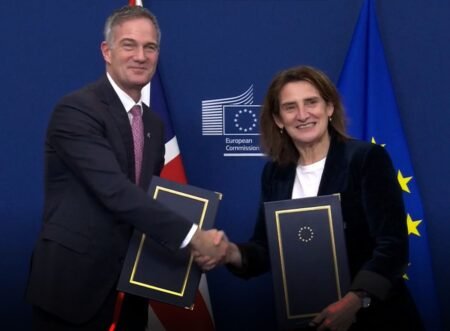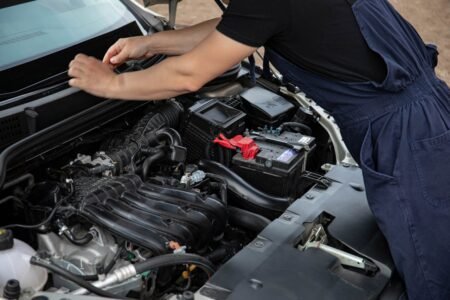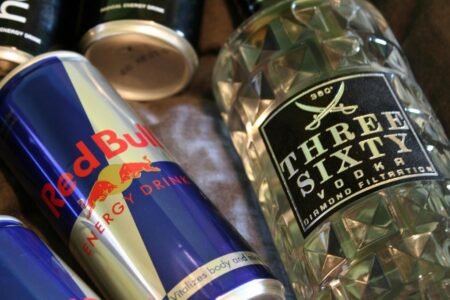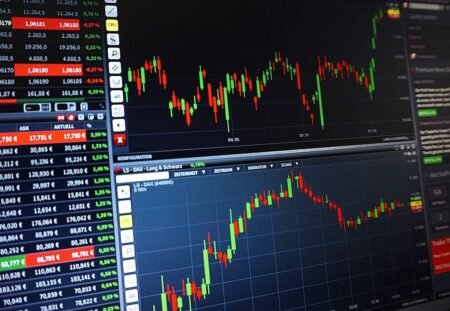The European Commission approved on 21 March under the EU Merger Regulation the acquisition of Monsanto by Bayer. The merger is conditional on the divestiture of an extensive remedy package, which addresses the parties’ overlaps in seeds, pesticides and digital agriculture.
Advertisement
The Commission’s in-depth investigation identified the following competition concerns:
a) Seeds and traits
Seeds are arguably the most important input for farmers, who need a choice of seed varieties that bring high yields in the soil and climate that the crop is cultivated in. Monsanto is the largest supplier of seeds in the world. Bayer is a comparatively smaller player, active in selected crops, but it has extensive research & development (R&D) activities. In Europe, Bayer and Monsanto compete in the supply of vegetable seeds, oilseed rape seeds and cotton seeds, and Bayer has generally been an active and important challenger to Monsanto.
The parties also compete in genetically-modified (GM) and non-GM traits. Traits are modifications to the genome of a seed that make the seed tolerant to certain herbicides or resistant to pests. Traits can be found in nature (native traits) or created with the help of biotechnological tools. They qualify as GM or non-GM traits depending on the biotechnology used to bring the trait into the seed. The trend in the industry goes towards the sale of seeds, which contain several ‘stacked’ trait combinations.
Vegetable seeds
Monsanto is globally the largest supplier of vegetable seeds with its Seminis and De Ruiter brands, and Bayer is currently the fourth largest player in the sector, with its Nunhem’s brand. The Commission concluded that the transaction as notified would have eliminated important head-to-head competition in several markets for particular vegetable seeds, where few alternatives were available to farmers.
Broadacre seeds
Broadacre seeds cover all seed crops that are cultivated on large plots of lands, such as corn, soy, wheat, oilseed rape, cotton seeds.
The activities of Bayer and Monsanto overlap in Europe in two crops namely oilseed rape and cotton seeds. The Commission had concerns that:
o Oilseed rape seeds: the transaction as notified would have eliminated competition in Europe between the largest supplier in Europe Monsanto and the largest supplier globally, Bayer, which is currently expanding into Europe.
o Cotton seeds: the transaction as notified would have eliminated competition in the licensing of cotton seeds in Europe.
Broadacre traits
Monsanto is the dominant player in the global trait business with its “Round Up Ready” trait stack families. Bayer with its “Liberty Link” trait stack families is an important and active competitor.
While many GM traits are not allowed for cultivation in Europe, the Commission has investigated the effects of the merger on the global market for the licensing of traits and trait stacks where Bayer and other European players such as BASF, Limagrain, KWS or Syngenta are active as licensors or licensees and directly affected by the merger.
The Commission found that the transaction as notified would have:
o eliminated competition between “Liberty Link” trait stack families (Bayer) and “Round Up Ready” trait stack families (Monsanto);
o eliminated innovation competition on GM and non-GM traits conferring herbicide tolerance or insect resistance; and
o strengthened Monsanto’s dominance in traits conferring herbicide tolerance or insect resistance.
b) Pesticides
Pesticides are products used in agriculture to control pests that can harm crops. Herbicides are pesticides that control weeds.
The Commission found that the transaction as notified would have:
o eliminated competition in non-selective herbicides for agricultural and non-agricultural uses between Bayer’s glufosinate (under its ‘Liberty’ and ‘Basta’ brands) and Monsanto’s glyphosate (under its ‘Round-up’ brand); and
o eliminated innovation competition in herbicides and herbicide systems (i.e. herbicide combined with a trait conferring herbicide tolerance to a crop).
The Commission also found that the transaction as notified would have eliminated potential competition in seed treatment to protect against nematode worms between Bayer’s and Monsanto’s future products (called Nemastrike).
c) Digital agriculture
Digital agriculture uses public data such as satellite pictures and weather data as well as private data collected from farmers’ fields. It applies agronomic knowledge and algorithms to that data to recommend to farmers how to best manage their fields. For example, how many seeds to use, and on how much and when to use pesticide and fertiliser. This makes digital agriculture important, not only to farmers but also to the environment.
The transaction as notified would have resulted in the loss of potential competition in Europe between Bayer’s recently launched Xarvio offering and Monsanto’s FieldView platform, the leading platform worldwide, which is about to be launched in Europe.
d) Initial competition concerns not confirmed by the in-depth investigation
Finally, the Commission also looked into the effect of the proposed transaction on innovation in biological pesticides and bee health, and investigated whether the merged entity would have had the ability to exclude competitors from the market through bundling of seeds and pesticides products at distributor level or at grower level. However, the in-depth investigation did not confirm any of these concerns
The commitments
Bayer offered a set of commitments that fully address the Commission’s competition concerns.
a) Vegetable seeds
Bayer has committed to divest its entire vegetable seed business, including its R&D organisation, to a suitable buyer currently not active in vegetable seeds. This would allow the buyer to replicate the competitive constraint previously exercised by Bayer on Monsanto and ensure that the number of global vegetable seeds R&D players remained the same.
b) Broadacre seeds and traits
Bayer has committed to divest to BASF almost the entirety of its global broadacre seeds and trait business, including its R&D organisation. The divestiture would include Bayer’s seed activities, not only in oilseed rape and cotton where Bayer’s activities overlap with Monsanto in Europe, but also in soybean and wheat, which are important globally and will ensure the viability and competitiveness of the divested business. It would also include Bayer’s entire trait business, including its R&D on GM and non-GM traits.
The divestiture of the seeds and trait business to BASF, which is currently not selling seeds, would remove all the horizontal overlaps between the parties It would also ensure that the current number of global integrated traits players remained the same at four players (with DowDuPont and Syngenta) and ensure that the current number of global broadacre seeds players remained at six (with DowDuPont, Syngenta, KWS and Limagrain).
c) Pesticides
Bayer has committed to divest to BASF its glufosinate assets and three important lines of research for non-selective herbicides. This research forms part of the race to find challenger products for glyphosate. The divested assets would enable BASF, which is currently not selling non-selective herbicides, to replicate the competitive constraint previously exercised by Bayer on Monsanto both in herbicides and in herbicide systems.
To address the Commission’s concerns in seed treatments to protect against nematode worms, the parties have also committed to divest to BASF Monsanto’s nematode seed treatment assets (Nemastrike). This would enable BASF to replicate the competitive constraint, which Monsanto would have exerted on Bayer absent the merger.
d) Digital agriculture
Bayer has committed to licence a copy of its worldwide current offering and pipeline on digital agriculture to BASF, maintaining competition by allowing BASF to replicate Bayer’s position in digital agriculture in the European Economic Area (EEA). This will ensure that the race to become a leading supplier in Europe in this emerging field remains open.
Divestiture to BASF
Bayer proposed in the commitments BASF as the purchaser of the main part of the remedy package comprising broadacre seeds and traits, pesticides and digital agriculture activities.
At first sight, BASF appears to be a suitable buyer because the fact that BASF does not currently sell seeds or non-selective herbicides means there are limited horizontal overlaps in these areas. Furthermore, BASF owns a complementary global pesticide business and it has the necessary financial strength to compete. A market test of competitors and customers was largely positive about the suitability of BASF as a purchaser.
However, Bayer and BASF need to provide further evidence to the Commission on BASF’s ability and incentives to run and develop the divested business in order to replicate Bayer as an active competitor of the merged entity, and on possible overlaps in particular in trait and herbicide research.
The outcome of this investigation cannot be prejudged at this stage. Bayer can only implement the acquisition of Monsanto once the Commission has formally assessed and approved the finalised divestiture of the package of assets to BASF.
For vegetable seeds, the commitments did not name a buyer. In the meantime, Bayer has also proposed BASF as a buyer for this part of the remedy. This part of the remedy also requires a purchaser approval.
The divestiture to BASF of the two packages triggered in the meantime a separate and parallel merger notification, the outcome of which can also not be prejudged.
International Cooperation
The Commission has cooperated very closely with a number of competition authorities on this case, including among others the US Department of Justice as well as among others the Australian, Brazilian, Canadian, Chinese, Indian and South African competition authorities.
Companies and products
Bayer, headquartered in Germany, is a diversified pharmaceuticals, consumer health, agriculture (Bayer Crop Science) and animal health company. This transaction mainly concerns the Bayer Crop Science division. Bayer Crop Science operates three business segments: (i) Crop Protection (i.e. pesticides); (ii) Seeds and Traits; and (iii) Environmental Science. Bayer is also active in developing and providing digital agriculture services.
Monsanto, headquartered in the US, is an agriculture company which produces seeds for broad acre crops, fruits and vegetables as well as plant biotechnology traits. It also supplies pesticide products, including the glyphosate herbicide under the “Roundup” brand, and other herbicides for agricultural and non-agricultural use. Additionally, Monsanto is involved in research on biological agriculture and provides farmers with digital agriculture services under the ‘Field View’ brand through its ‘Climate Corporation’ business.
Source: European Commission






